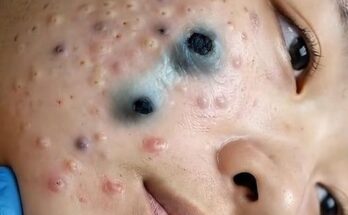It’s one of the most common skin conditions, yet it often makes people feel isolated or self-conscious.
If you’ve ever found yourself hesitating to go out, avoiding social gatherings, or feeling anxious about meeting new people because of your skin, you’re not alone. The good news is that there are ways to manage both the emotional and social sides of acne while keeping your confidence strong and your outlook positive. The first thing to remember is that acne is extremely common. Millions of people experience it in various forms, from the occasional breakout to persistent blemishes. When you remind yourself that acne is simply a part of being human, it helps reduce the feeling of being “different.” No one’s skin is perfect all the time, and many people are more understanding and empathetic than you might expect. Real confidence doesn’t come from flawless skin but from how comfortable you are being yourself despite imperfections. Building self-confidence starts with your inner dialogue. When you catch yourself thinking negatively about your appearance, pause and replace that thought with something more compassionate. Instead of saying, “My skin looks terrible,” try, “My skin is healing, and I’m taking care of it.” This shift in mindset may seem small, but it gradually retrains your brain to see yourself more kindly. It’s important to treat yourself with the same patience and encouragement you would offer a close friend. Another way to ease social anxiety is to focus less on your appearance and more on the moment you are in. When you’re talking with someone, pay attention to the conversation rather than worrying about how your skin looks. People usually notice your energy, smile, and attitude more than any blemish. If you project warmth and positivity, that’s what stays with them. Engaging actively in discussions, maintaining eye contact, and showing genuine interest can create strong social connections that go far beyond looks. Sometimes, the fear of being judged can be stronger than any actual judgment. Most people are too focused on their own concerns to scrutinize your skin closely.

Still, if you encounter a comment or question about your acne, try not to take it personally. Many people simply don’t realize how their words might come across. You can choose to respond with humor or straightforwardness, whichever feels right to you. Saying something like, “Yeah, I’m working on it,” or “My skin’s just having a bad week,” can diffuse tension and show that you’re comfortable enough not to let acne control the conversation. Taking care of your emotional health is just as important as caring for your skin. Stress and anxiety can sometimes make breakouts worse, so finding healthy ways to relax can benefit both your complexion and your mindset. Regular exercise, deep breathing, spending time outdoors, or practicing mindfulness can help reduce tension and promote emotional balance. Simple acts of self-care—like keeping a consistent skincare routine, drinking water, and getting enough sleep—can also reinforce a sense of control and self-respect. Support from friends or family can make a huge difference. Talking openly about your insecurities may feel vulnerable, but it often leads to stronger, more understanding relationships. You might be surprised to learn that many people you know have struggled with skin concerns too. Sharing your experiences can reduce feelings of isolation and remind you that appearance is only one small part of who you are. If you feel that acne is seriously affecting your self-esteem or social life, speaking with a counselor or therapist can provide professional guidance and coping strategies. It’s also worth exploring online communities that promote positive discussions about skin health. Many people find comfort in connecting with others who understand what they’re going through. Just be sure to choose supportive spaces that focus on encouragement rather than comparison. Social media can be both a help and a hindrance, so curate your feed to follow accounts that inspire confidence and self-acceptance. Seeing real people with real skin can help counter unrealistic beauty standards. Choosing how to present yourself socially can also boost confidence. Wearing clothes that make you feel comfortable, keeping your hair styled in a way you like, or using light makeup if you wish—these are all ways to enhance your self-image without hiding who you are. There’s no shame in wanting to look your best; the key is to do it from a place of self-care, not self-criticism. If makeup makes you feel more confident, use it as a tool for expression, not concealment. If you prefer to go makeup-free, that’s equally empowering. Your comfort matters most. Social interactions can sometimes feel intimidating, but remember that every person you meet has something they’re self-conscious about. Everyone has experienced awkward moments or insecurities in social situations. By showing kindness to yourself and to others, you create an atmosphere where authenticity thrives. Confidence is not the absence of insecurity—it’s the courage to be yourself even when you have doubts. Another helpful perspective is to focus on what your body and skin do for you rather than how they look. Your skin protects you, regulates your temperature, and allows you to feel the world around you. Appreciating its function can shift your relationship with it from frustration to gratitude. Small acts of appreciation toward your body reinforce a sense of self-worth that’s independent of appearance. You might also find it helpful to set personal goals that have nothing to do with your skin. Whether it’s learning a new hobby, joining a club, volunteering, or taking a class, engaging in activities that spark your interest helps build identity and confidence from the inside out. When your sense of self grows stronger in different areas, acne becomes a smaller part of how you define yourself. Ultimately, overcoming the social challenges of acne is a process of self-acceptance. There will be good skin days and bad ones, and that’s perfectly normal. Each day is an opportunity to practice resilience, compassion, and confidence. The more you practice seeing yourself as more than your skin, the more natural it becomes to navigate social situations with ease. Remember, you are not alone in this. Acne is temporary, but your personality, kindness, and character are lasting. With patience, support, and a positive mindset, you can feel at ease in your own skin and engage with the world confidently. Life’s best connections happen when you show up as yourself—blemishes, confidence, and all.


